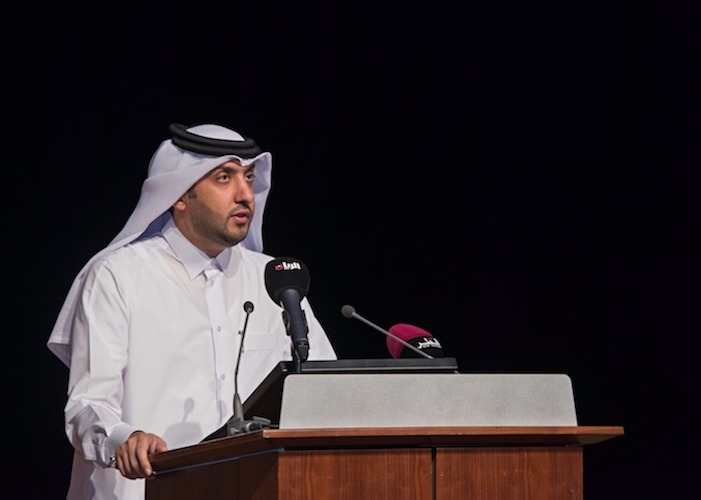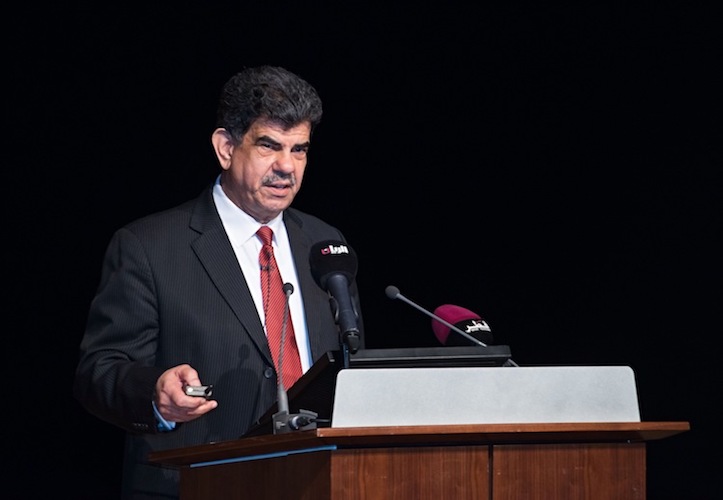Qatar National Research Fund (QNRF) went global as members of the nation’s research community gathered together in Doha – and online across the world – for the 9th QNRF Annual Forum.
Held at the Qatar National Convention Centre and simultaneously broadcasted via the internet, the highlight of the event was the announcement of funding awards for 85 research projects that address Qatar’s greatest challenges, through QNRF’s National Priorities Research Program (NPRP). The Forum also revealed the beneficiaries of other awards under QNRF’s portfolio of programmes.
Now on its 10th year, the NPRP was described as a ‘resounding success’ by QF R&D Executive Vice President Dr Hamad Al-Ibrahim, in his opening remarks.
This year, we introduced the concept of co-funding, encouraging contributions from collaborators and stakeholders.’

Such collaborations, emphasised Dr Al-Ibrahim, help ensure that industry and the private sector are playing their parts in meeting Qatar’s priorities. He outlined how the clustering of NPRP-supported projects around central priority themes represents a more effective use of resources.
A presentation by QNRF Executive Director Dr Abdul Sattar Al-Taie entitled ‘Road To Impact’, focused on the importance of NPRP-funded projects leading to solid research outcomes.
As Qatar’s national funding agency, QNRF’s commitment to preparing a diverse, globally engaged research workforce has seen an increase in creative, original submissions that show potential for commercialisation. By integrating research with education and building capacity through a variety of support programmes, QNRF has progressively built a framework that is now pivotal to the diversification of the nation’s economy as it shifts towards a more sustainable economic model.

Presentations at the Annual Forum also saw QNRF Technical Director Dr Hisham Sabir outline efforts to simplify the progress reporting system for ongoing research projects while maximising their impact. QNRF Capacity Building Director Dr Aisha Al-Obaidly gave an overview of the programmes QNRF has put in place to nurture and enhance homegrown scientific and research talent, before announcing the recipients of QNRF’s Graduate Sponsorship Research Awards.
For the fourth consecutive year, QNRF’s Best Research Office of the Year award went to Texas A&M University at Qatar.
Noor Al-Merekhi, Deputy Executive Director and Director of Programs, QNRF, then presided over the awards for the Path Towards Personalised Medicine and Osra— which means ‘family’ in Arabic—programmes, before announcing the awards for the 10th cycle of the NPRP.
As part of the diligent peer review process, many factors were taken into consideration, the most important of which is to select research proposals that have the capacity to make the greatest scientific and socio-economic impact on Qatar. The mechanics of the NPRP have been adjusted as we continue to address the long-term Grand Challenges.’
The 13 entities in Qatar that will benefit from support through the 10th cycle of NPRP are: Aspetar (1 awarded proposal); Carnegie Mellon University in Qatar (4); College of the North Atlantic – Qatar (2); Doha Institute For Graduate Studies (2); Gulf Organisation for Research and Development (1); Hamad Bin Khalifa University (8); Hamad Medical Corporation (4); Ministry of Public Health (1); Northwestern University in Qatar (1); Qatar University (29); Sidra Medical and Research Center (8); Texas A&M University at Qatar (19); and Weill Cornell Medicine-Qatar (5).
Visit qfrd.org for more information.




